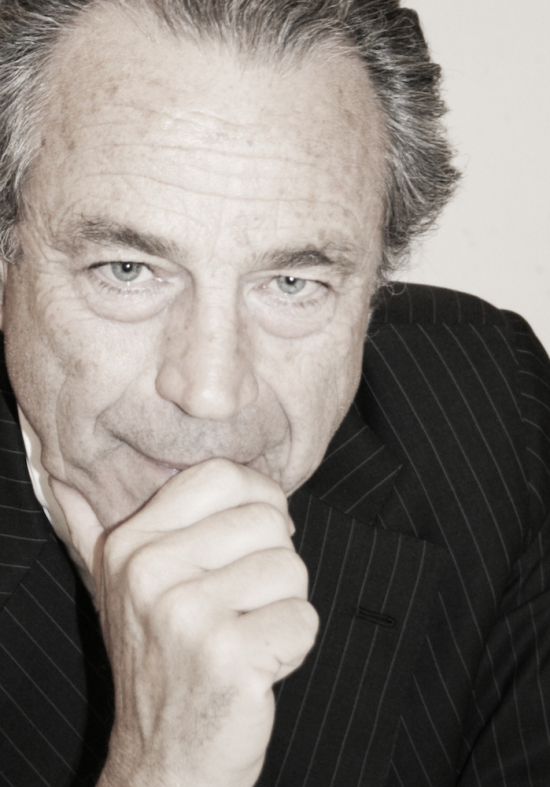We met at the café of his outstanding BOOKABAR, maybe the most beautiful and up-to-date bookshop in Roma, located in the Palazzo delle Esposizioni. He was handsome and well-dressed. “Neckties are my destiny” he said as he explained that ties made a difference every time he had an opportunity for improvement. A man that commands respect, maybe because he looks directly in the eyes of whoever is in front of him, as serious as if he was investigating him/her.
He went over the beginning of his career, and a nostalgic and proud smile surfaced on his lips.
He was 15 years old when he decided to leave school because “I didn’t like it”, he said, and found a job at the kiosk number five next to the Termini Railway Station (that it is still his property), where he learnt to sell books and quickly understood that if you want to sell books, you should read them first.
“A clean boy”, as he defines himself, but above all a quick one with a careful eye to figures and to any opportunity destiny may offer: in a few years he moved up from managing the kiosk – when he was just 18 – to owning his first bookshop in 1974 in via Eritrea and today he is the owner of twenty bookshops: the ARION.
A life that has always been flowing among books, among bookshops, with all their dynamics and problems, without neglecting politics. He actually participated in the meeting about the law on books that he doesn’t approve of completely but that at least represents a starting point.
A man that for sure didn’t only sell books but took action to respect their value. And yet he has never dreamt of becoming a publisher.
“Books have always been a vital topic to me, they are important for all knowledge” he said and told the many adventures he has embarked on in order to improve the conditions of independent booksellers and therefore his own. Roma libro, an enthusiastic attempt to reproduce what he saw in the United States: in 1981 Leo Mondadori had given him and 14 other Italian booksellers the opportunity to learn the American method and follow the example of Barnes & Nobles, the independent booksellers that aimed to contrast the publisher’s bookshops. Then he became vice-president of the association of Italian booksellers, ALI, that aimed to create favourable conditions for small booksellers. He explained that it is not easy to work with booksellers, because they lack entrepreuneurship. “Independent bookshops have closed down” he clarified “because they didn’t marry the profession of bookselling”.
There is a crisis, there are large-scale chains, large-scale distributors, but Ciccaglioni doesn’t surrender and prepares his great resistance plan, once more, alone, with his Arion maximiniworld. He has never stopped believing, nor reinvesting in his activity, always focusing on the future, on development.
“Books are beautiful and delicate goods that are used as a lure by large-scale distribution. Products that are so important for a country’s community, used in such a ‘vulgar’ way” he said as he illustrated the strategy for his epic enterprise: when the rest of the world was into a panic, frightened or – worse! – resigned, he decided to go back to what has always been the most important value of his activity:
SERVICE and PROFESSIONALISM.
He hopes for the comeback of “booksellers as we were once” but with the technology and innovation at our disposal today.
I won’t disclose all his programme, that I found interesting and thought-out, certainly more effective than the great globalpoliticaleconomic explanations (unintelligible, at least to me, poor uneducated inhabitant of the Earth) that some influential booksellers gave me. I believe his defense strategy is absolutely effective because it focuses on the object, the book, and his consumer. Bookshop’s customers that don’t happen to fall inside a bookshop every now and then, but every weekend MUST go out and buy a book, maybe more than one, even if they won’t read every single book they own, they feel full only when their shelves are full, they need books like obese people need sugar.
Many people are still in search for a trusted bookseller, a reference bookshop, and Ciccaglioni knows it. I find that his bet is a winning but also a cautious one, as it is based on numbers that move forward one by one, like the pages of a book, a refined product but with a small margin and the price printed on the cover.
